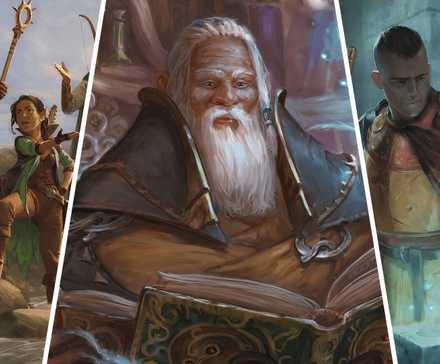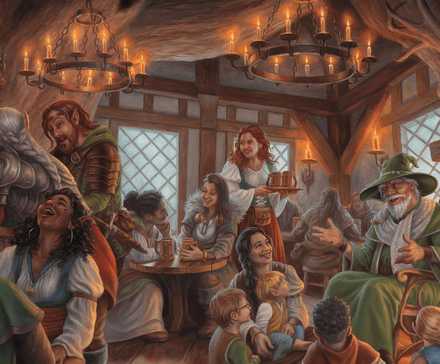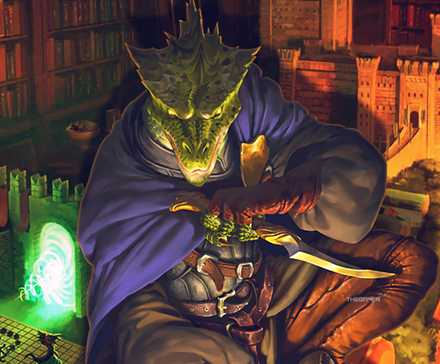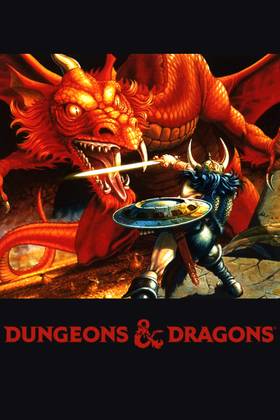
Metagaming is bad, right? When playing Dungeons & Dragons, the whole idea is to be immersed in the world, incorporating your characters and going through the adventure the DM has prepared for you. Because of that, one of the worst things you can do is break that immersion by reminding everyone that this is just a game. Or is it?

Dungeons & Dragons: 8 Ways To Cheat As The DM
Because “make it a fun game” is the only rule you should never break.
In truth, D&D is a game, and trying to do everything in your power to forget that detail isn’t the most beneficial course of action. Sometimes, the experience can even be improved by reminding yourself that this is just a game – most people even metagame in positive ways without realizing it.
10
When A Player Is Absent
Better Than Roleplaying Their Character
Sometimes, a player might miss the session. While the DM can control the character, essentially turning them into an NPC for a night, it’d be awkward if anything big happened to the character, narrative-wise.
Thus, if anyone has anything to say to this particular character, well, that’s only going to happen next time, because the character isn’t feeling like themselves right now, and all players know why, even if the characters don’t acknowledge it.
9
When Players Try To Get The Enemy’s Stats
I Think Their AC Is 19, Guys
Combat is a huge deal in D&D, and it’s also the moment where the game mostly feels like a game. It’s where most features become relevant, and the same goes for everyone’s stats.
Because of that, it’s normal for players to discuss the enemy’s stats during the fight, picking up on the clues they’re getting from every attack. They’ll likely realize the enemy’s AC, including any resistance or immunity to specific damage types, and so on. And that’s okay.
8
When Players Rolled Poorly
“You Don’t Find Any Traps”
One complication with rolling poorly on skills like Perception or Insight is that players may become overly paranoid about it. If they rolled a natural one when searching for traps, for instance, they’ll be sure there are traps in the area, even if there aren’t.
As a DM, you can’t confirm or deny it either, because then you’d just turn that failed roll into a success by giving them the answer. Instead, you can use their knowledge of the value rolled to build tension and have a great time with their paranoia.
7
When The Group Gets Together
Fight With Me, Stranger!
There are many ways to get a party started in D&D. While some are more organic than others, everyone at the table knows that, if the characters don’t know one another before the campaign starts, they have to be a group by the end of the first session.

Dungeons & Dragons: 10 Unique Starting Locations That Aren’t A Tavern
Tired of starting every Dungeons & Dragons campaign in a tavern? Here are some unique starting locations to try out.
That’s why one character makes the effort of starting a conversation with this other character in the tavern, who just so happens to be one of the other players, and so on and on until everybody is a group.
6
When Player Characters Don’t Seem Like A Good Match
Keep The Group Together
All that said, though, what if the players realize that two characters have very opposing personalities and don’t get along? Sure, if the players are on board with in-party bickering, they can keep that going and have a fun arc about these two becoming friends.
However, that can be an annoying thing for the players to roleplay or even for the rest of the group to deal with, so these two characters can end up toning their behavior down based on the decisions made by the players, and not necessarily the characters.
5
When A Player Swaps Characters
Yes, Join Us, Stranger
We’re not done with party composition. Sometimes, a player may change their character during a campaign. Maybe they’re not enjoying their current character, or maybe the character got disintegrated.
Regardless of the reason, there’s this odd, funny moment where someone the party loves leaves (or dies), and then a total stranger pops up to replace the previous person, which is obviously and quickly accepted because, well, everyone wants to keep the player in the game.
4
When The DM/Player Knows Something The Character Doesn’t
Nice To Meet You, Adventurers!
Whether it’s through character swapping, player knowledge about the monster, or other things, sometimes players know things their characters aren’t supposed to.
They’ll likely pretend they don’t know these things and make choices based on their ‘lack’ of knowledge, but making a choice just to act like you don’t know the information is still technically metagaming. And as a DM, you let it happen.
Besides, let’s face it, DMs do this one way more often, playing NPCs meeting the party for the first time over and over, even though the DM knows these characters extremely well. And also pretend to be fighting them for the first time, ‘oblivious’ to each character’s weaknesses.
3
When The Character Knows Something The DM/Player Doesn’t
The Opposite Applies Here, Too
Have you ever roleplayed a character that is more knowledgeable at something than you are? Or maybe a shady rogue who knows more about crime than you do? Hopefully, you answered yes to the latter.

Shhhh, Don’t Tell Your DM About These 10 Ways You Can Cheat As A Player In Dungeons & Dragons
Against all odds, there are ways to cheat in Dungeons & Dragons. Just don’t tell your DM about this list.
The point is, sometimes our characters know things that we barely understand ourselves, as they’re outside our area of expertise. That’s why sometimes we don’t roleplay, but rather just roll the dice, and they manage to do what they want to.
2
When The Plot Hook Is A Bit Obvious
We Should Follow This Strange Growl
Okay, this one is more of a player decision rather than a DM decision, but it’s worth noting. DMs do their best to make their story move smoothly and organically, but sometimes they fail. Or their players are veterans, used to most tropes by now.
Still, unless the game isn’t story-driven, ignoring all the plot hooks the DM leaves along the way is just not a cool thing to do. Thus, even if it’s obvious, going for the plot hook is just good sportsmanship.
1
When A Die Roll Makes A Choice For You
Odd Number I Stay, Even Number I Go
Whether you’re a DM or a player, sometimes you can be in such a morally-torn situation in the game that you can see both outcomes as a likely thing to happen. For instance, having to kill an innocent character for the collective good, and you can see your character making either decision.
To avoid being stuck on the choice, nothing stops you from just getting one of the many dice on the table, deciding numbers for each choice in your mind, and rolling it. Letting a die decide things is very ‘metagamy,’ but it can help in moments like this.

- Original Release Date
-
1974
- Player Count
-
2+
- Age Recommendation
-
12+ (though younger can play and enjoy)
- Length per Game
-
From 60 minutes to hours on end.
- Franchise Name
-
Dungeons & Dragons
- Publishing Co
-
Wizards of the Coast










